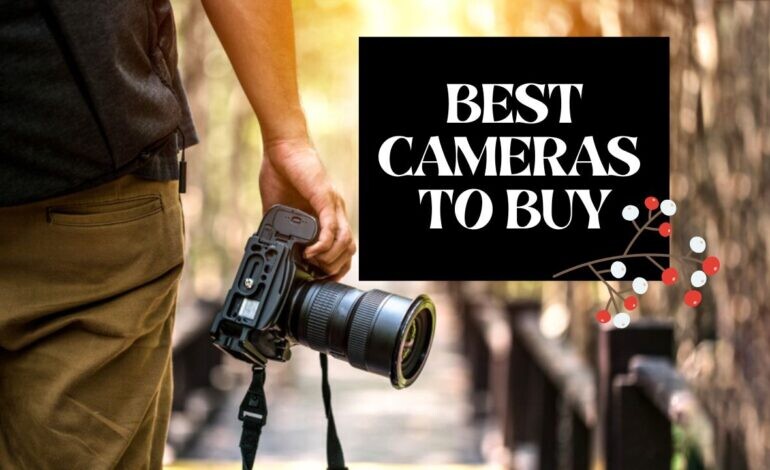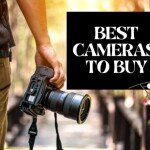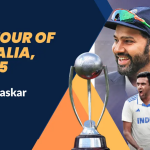Which camera should you buy? What and how you want to shoot will determine that. Here are ten excellent cameras for different user types.
Even for experienced photographers, picking the best camera can be challenging because there are so many different models and price ranges to consider. The greatest camera for photography isn't always the most costly or powerful model; rather, the best camera for photography is the one that is best suited to your needs. Here is our ranking of the top 10 cameras available today for all types of photographers and consumers.
1. Olympus OM-D E-M10 Mark IV

The Olympus OM-D E-M10 Mark IV is a great camera for learning about photography and video since it has a flip-over screen for selfies and excellent in-body image stabilisation. It is also small and portable enough to use on a daily basis. The E-M10 Mark IV is the best entry-level camera because it can perform almost everything, has 4K video, and has nice aesthetics. The advantage is that the lenses are smaller and lighter, despite the fact that it has a smaller Micro Four Thirds sensor than comparable mirrorless cameras or DSLRs. This is a fantastic tiny camera that is so much more powerful than it appears to be and might last you for a very long time.
SPECIFICATIONS
- Type: Mirrorless
- Sensor: Micro Four Thirds
- Megapixels: 20.3
- Lens mount: MFT
- Screen: 3-inch 180-degree tilting touchscreen, 1,037k dots
- Viewfinder: EVF, 2,360k dots
- Max shooting speed: 8.7fps
- Max video resolution: 4K UHD
- User level: Beginner/intermediate
REASONS TO BUY
- Latest 20MP sensor
- 5-axis in-body stabilisation
- Small body, small lenses
2. GoPro Hero10 Black

If you're searching for your first action camera, the GoPro Hero 10 could be a little more than you need, but if you're looking for a camera that can shoot incredibly smooth, high-quality footage, this one can't be better. Although it may resemble the GoPro Hero 9, which is currently in production, it is a major upgrade. It has a new G2 processor, which doubles frame rates, makes the UI incredibly snappy, and powers the greatest image stabilisation technology currently used in action cameras. Its ability to shoot in 5.3K 60p using GoPro's new HyperSmooth 4.0 video stabilisation is its standout feature. Additionally, it can take 23-megapixel photographs and performs the best in low light of any GoPro to date.
SPECIFICATIONS
- Weight: 153g
- Waterproof: 10m
- 5K video: up to 60fps
- 4K video: up to 120fps
- 1080P: up to 240fps
- Stills resolution: 23MP
- Battery life: 1-32hrs estimate
REASONS TO BUY
- Faster user interface
- Increased frame rates
- Hydrophobic lens coating
3. Fujifilm X-S10

The only drawback we can find with the Fujifilm X-S10 is that it lacks the exterior exposure controls of the higher-level X-series cameras, but even with that, it's obvious that this is no "amateur" camera. as its handling and build quality immediately stand out. Fujifilm fans may be disappointed by the switch to a traditional mode dial, but this camera has a very wide appeal, especially in this price range, and offers perhaps the best balance of performance, quality, and value in the APS-C mirrorless camera market right now thanks to its excellent finish, build quality, and handling.
SPECIFICATIONS
- Type: Mirrorless
- Sensor: APS-C
- Megapixels: 26.1MP
- Lens mount: Fujifilm X
- Screen: 3-inch vari-angle touchscreen, 1.04m dots
- Viewfinder: EVF, 2,360k dots
- Max continuous shooting speed: 30/8fps
- Max video resolution: 4K
- User level: Intermediate/Expert
REASONS TO BUY
- Small size & excellent build quality
- Vari-angle touchscreen
- In-body image stabilisation
4. Canon EOS 90D

Although mirrorless cameras are extremely popular, we have included the Canon EOS 90D for all of the DSLR enthusiasts who are still out there as well as for those who have drawers full of Canon lenses. The Canon EOS 90D is an incredible APS-C workhorse camera that combines a 32.5MP sensor, the greatest resolution ever seen in an APS-C sensor, with a high-speed frame rate of 10fps and stunning uncropped 4K video, avoiding the irksome crop that has historically plagued Canon cameras. Its handling and ergonomics are wonderful, reminding us of why using a DSLR is such a satisfyingly tactile experience.
SPECIFICATIONS
- Type: DSLR
- Sensor: APS-C
- Megapixels: 32.5MP
- Lens mount: Canon EF-S
- Screen: 3.0in touch, pivot 1,040,000 dots
- Viewfinder: Pentaprism
- Max burst speed: 10fps
- Max video resolution: 4K
- User level: Enthusiast
REASONS TO BUY
- Tremendous value
- Fully articulated touchscreen
5. Sony ZV-1

For any type of serious photography or filmmaking, we typically advise using interchangeable lens cameras, but we'll make an exception in the case of the Sony ZV-1. In comparison to its Micro Four Thirds and APS-C rivals, it has a fixed 3x zoom lens and a 1-inch sensor, but it makes up for these shortcomings with a super-compact body that can fit into a jacket or even a trouser pocket and a body, controls, audio system, and rear that are brilliantly optimised for vlogging. The woolly hat you see in the photos is a wind muffler that is included with the camera. This camera's autofocus is blazingly quick and does an excellent job when you hold objects up to the camera.
SPECIFICATIONS
- Type: Compact
- Sensor: 1inch CMOS
- Megapixels: 20.1MP
- Lens mount: N/A
- Screen: 3-inch vari-angle touchscreen, 921k dots
- Viewfinder: No
- Max continuous shooting speed: 24fps
- Max video resolution: 4K
- User level: Intermediate
REASONS TO BUY
- Vari-angle rear screen
- Clip on wind shield
- Brilliantly fast AF
6. DJI Pocket 2

The DJI Pocket 2 might make an excellent travel/vlogging camera, even though we've gone off the deep end with our notion. It wouldn't be the first option for still photos, but its 16MP photos (it can go up to 64MP) are probably better than those on a smartphone, and it can also take programmed multi-row panoramas that are stitched in-camera. Even a wide-angle add-on is available for stunning interiors and architecture. However, its video shines, thanks to an integrated gimbal that offers a smoothness that larger cameras can only hope for. It includes three "follow" modes, just like a real gimbal, plus a tiny controller for motorised pan and tilt motions. This one differs in that it can fit in a shirt pocket.
SPECIFICATIONS
- Type: Gimbal camera
- Sensor: 1/1.7-inch
- Megapixels: 64/16MP
- Lens mount: N/A
- Screen: 1-inch touchscreen
- Viewfinder: No
- Max continuous shooting speed: N/A
- Max video resolution: 4K
- User level: Beginner/Intermediate
REASONS TO BUY
- Excellent stabilization
- Panoramas, timelapse, more
- Simple forward/selfie switching
7. DJI Mini SE

The best way to think of the DJI Mini SE in terms of quality is as a flying smartphone camera from a mid-range device. That, though, is a high standard these days, certainly far higher than toy drones and their shaky video because this drone can hover perfectly thanks to its onboard sensors and has a 3-axis mechanical stabilizer for its camera. Drone experts might decide that the 2.7K video resolution isn’t enough for them, but most new users will be amazed by the stability and the video quality. The Mini SE also scrapes in beneath the legal 250g registration threshold and has a much more welcoming entry price than anything else DJI offers, making it a perfect gift. Software-wise the app is intuitive and includes auto land, return to home and some cool orbiting effects which will be sure to earn likes
SPECIFICATIONS
- Weight: 249g
- Dimensions (folded): 180×97×84mm
- Dimensions (unfolded): 159 x 203 x 56mm
- Controller: Yes
- Video resolution: 4K 30fps (1080P@60fps)
- Camera resolution: 12MP
- Battery life: 30 minutes
- Max Range: 3.5km / 2.17mi
- Max Speed: 72kph / 44.7mph
REASONS TO BUY
- Side-steps registration fees
- GPS and Altitude Hold
- Slightly better in wind than the old Mini
8. Sony A7R Mark IV

The Sony A7R Mark IV offers the best resolution yet in a full frame camera. The "R" variants in Sony's A7 series cameras are built primarily for resolution. Not only is the detail reproduction excellent, but the camera also offers a 10fps continuous shooting speed, 4K video recording capabilities, in-body 5-axis image stabilisation, and one of the most potent autofocus systems ever developed, including the greatest eye AF in the history of the planet. However, one of the most persuasive arguments for choosing the Sony system is the wide selection of lenses that are currently offered, both by Sony and by other lens manufacturers, as well as the popularity that the Sony brand has gained among professionals in the photography industry.
SPECIFICATIONS
- Type: Mirrorless
- Sensor: Full frame CMOS
- Megapixels: 61MP
- Lens mount: Sony FE
- Screen: 3-inch tilting touchscreen, 1,440,000 dots
- Viewfinder: Electronic, 5.76m dots
- Continuous shooting speed: 10fps
- Max video resolution: 4K
- User level: Professional
REASONS TO BUY
- 61 megapixel resolution
- 10fps continuous shooting
- Advanced Eye AF
9. Nikon D3500

The Nikon D3500 is a long-standing favorite of ours. It's by no means the most advanced DSLR you can get, but its simplicity, its controls and the quality of the images it can create make it our top recommendation for anyone just starting out. There’s a lot the D3500 doesn’t do – it has a fixed rear screen that’s not touch-sensitive, it doesn’t have hybrid on-sensor autofocus and it doesn’t shoot 4K video. But its 24-megapixel sensor delivers super-sharp, super-high quality images, Nikon’s latest AF-P retracting kit lens is a miniature marvel and focuses very fast in live view, even without on-sensor phase-detection autofocus.
SPECIFICATIONS
- Type: DSLR
- Sensor: APS-C
- Megapixels: 24.2MP
- Lens mount: Nikon F
- Screen: 3-inch fixed, 921,000 dots
- Viewfinder: Optical
- Max video resolution: Full HD
- User level: Beginner
REASONS TO BUY
- Great ergonomics
- Superb image quality
- Versatile and affordable
10. Canon EOS R5

The EOS R5 is Canon's latest flagship mirrorless camera, and seems to be trying to corner every segment of the market at once. It's got a brand-new 45MP sensor that produces images of incredible detail thanks to a new low-pass filter, as well as the class-leading autofocus system of the EOS-1D X Mark III, with a whopping 5,940 AF points for photography and 4,500 for video. The EOS R5's video specs are nothing short of next-generation. It can capture uncropped 8K Raw video internally at up to 29.97fps in 4:2:2 12-bit Canon Log or HDR PQ (both H.265) in both UHD and DCI – this is cinema-quality stuff, and Canon knows it. 4K capture is also possible at up to 119.88fps, and with the new Frame Grab function, it's possible to snatch high-resolution 35.4MP stills from your 8K footage, ensuring you never miss a moment.
SPECIFICATIONS
- Type: Mirrorless
- Sensor: Full frame CMOS
- Megapixels: 45MP
- Monitor: 3.15-inch fully articulating touchscreen, 2,100k dots
- Continuous shooting speed: 12fps mechanical shutter, 20fps electronic shutter
- Viewfinder: 0.5-inch OLED EVF, 5,690k dots, 100% coverage
- Max video resolution: 8K DCI or UHD at 30p
- User level: Professional
REASONS TO BUY
- Incredible image quality
- Exceptional 8K video
- 20fps shooting!









